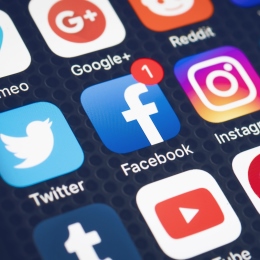
permission to print image: Gale
The growth of social media has had a major impact on the mental health of young adults and teens. Since social media started becoming a big thing, depression rates have risen a lot more than they should. The same is true for anxiety and suicide.
“Social media has a reinforcing nature. Using it activates the brain’s reward center by releasing dopamine, a ‘feel-good chemical’ linked to pleasurable activities such as sex, food and social interaction. The platforms are designed to be addictive and are associated with anxiety, depression and even physical ailments,” according to McLean Harvard Medical School.
Having everything in the palm of one’s hand causes many mental health issues because people are no longer exposed to the real world. They’re relying on a piece of technology so much and that’s what affects the brain.
Comparing oneself to others through unrealistic photographs is another factor. The age when kids start getting into social media is the same age as when kids go through their developmental changes. Everything impacts how a child is shaped into the person they will become later in life.
Another way social media can affect people is by increasing their anxiety levels. The anxiety of posting a new photo and hoping it’s good enough is a big factor because social media creates an idea that people aren’t beautiful when they’re different.
Social media anxiety is also caused by feeling like everyone else is using social media sites, and if one can’t join in, they will now become concerned that they’ll miss jokes, connections or invitations.
“Social-media anxiety has physical and mental effects [like]…feelings of inadequacy, low self-esteem, depression and jealousy,” according to The Christian Healthcare Center.
Missing experiences can create anxiety and depression. When people look online and see they’re excluded from an activity, it can affect thoughts and feelings and it can affect them physically. When teens don’t have enough peer validation, it changes the way they see themselves. Humans also need face-to-face contact to be mentally healthy.
Psychology Today did a study that showed that “higher amounts of screen time are associated with higher levels of anxiety and depression–adding to the already copious literature on the subject. [The study] provides longitudinal data to suggest that, over a time course of four years, adolescents who use social media a lot, show corresponding increases in their levels of anxiety and depression.”
The more people prioritize social media interaction over in-person relationships, the more they’re at risk for developing or enhancing mood disorders such as anxiety and depression.


